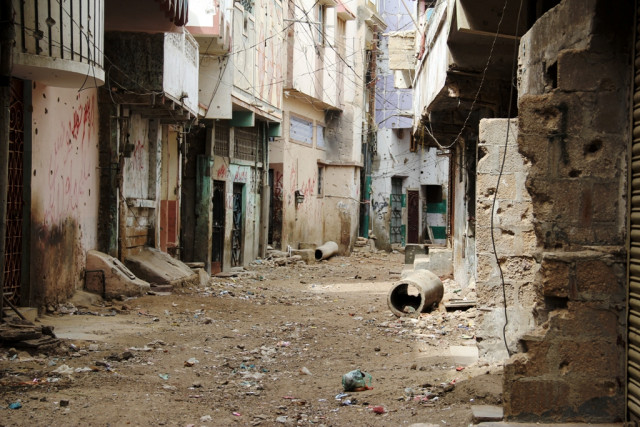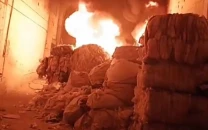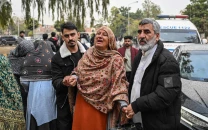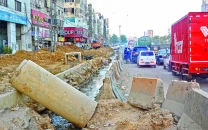Has battling poor sanitation made Lyari resilient to Covid?
Health officials baffled at low infection, fatality rate among residents of city's neglected localities

"We live with cockroaches and bed bugs... so many other insects. You will see mice running everywhere.
Do you think the coronavirus is deadlier than what we have been facing for years?" asked Dawood Alam, who lives on Shah Abdul Latif Road, Lyari.
For years, Lyari's residents have lived with poor sanitation, waste and sewerage mismanagement and contaminated water.
Baffling health professionals, it appears that living in such conditions made their bodies resilient to the deadly virus that has left the world shaken.
Despite little heed paid by local residents to coronavirus restrictions imposed by the government - with many believing that the virus does not exist, not for them at least - a negligible number of cases have been reported in the area.
Those who are diagnosed with the infection, regain health swiftly, said Shaheed Mohtarma Benazir Bhutto (SMBB) Medical College Lyari Principal Dr Anjum Rehman.
"The number of patients from this area is very low," she told The Express Tribune. Out of the 130 patients admitted in the Covid19 ward at her facility, only 10 hailed from Lyari.
Read More: Maradona’s death plunges Lyari into grief
Most of the patients had been referred to the health facility from other districts of the metropolis. "The people of Lyari have very strong immunity," she observed, adding that very few persons from the area have been tested for the contagion.
The few elderly patients who were brought to the hospital in critical condition also managed to overcome the infection and soon regained health.
"Last week we admitted a man past 75 years of age. His oxygen saturation was dangerously low at 50 per cent. And now his condition is stable and he is being discharged."
Seconding Dr Rehman's observations, Sindh Infectious Disease Hospital and Research Centre's (SIDHRC) Dr Abdul Wahid Rajput said that coronavirus cases among the residents of Lyari were rare.
At SIDHRC, located near Nipa Chowrangi, he said very few Covid-19 patients belonged to areas with poor living conditions.
People living in areas like Lyari have already been deprived of clean drinking water, good food and hygienic living conditions, said Dr Rajput.
Taking the hypothesis a step further, he said that he had hardly seen labourers or masons - professions common among Lyari's residents - diagnosed with the virus.
"Their immunity is stronger because of physical activities." Although it is possible that many local residents were asymptomatic or didn't get tested for the virus when they did feel symptoms or that the area was simply overlooked when it came to random testing, health officials observed that a negligible number of Covid fatalities were reported in Lyari.
"There is no virus in Lyari. It does not exist here," said Dilmurad who lives near SMMB Medical College Lyari. "It is patients from other areas who come here [to be treated for the virus].
Like several other local residents, Dilmurad told The Express Tribune that he had not known of a single person from his neighbourhood to die of the coronavirus.
The resilience built by people living in neglected localities might have prevented them from the more vicious attacks of a pandemic that has claimed at least 4.63 million deaths worldwide.
But it also testifies to the callous negligence of the government that forced citizens to acclimate themselves to disease-riddled living conditions.


















COMMENTS
Comments are moderated and generally will be posted if they are on-topic and not abusive.
For more information, please see our Comments FAQ